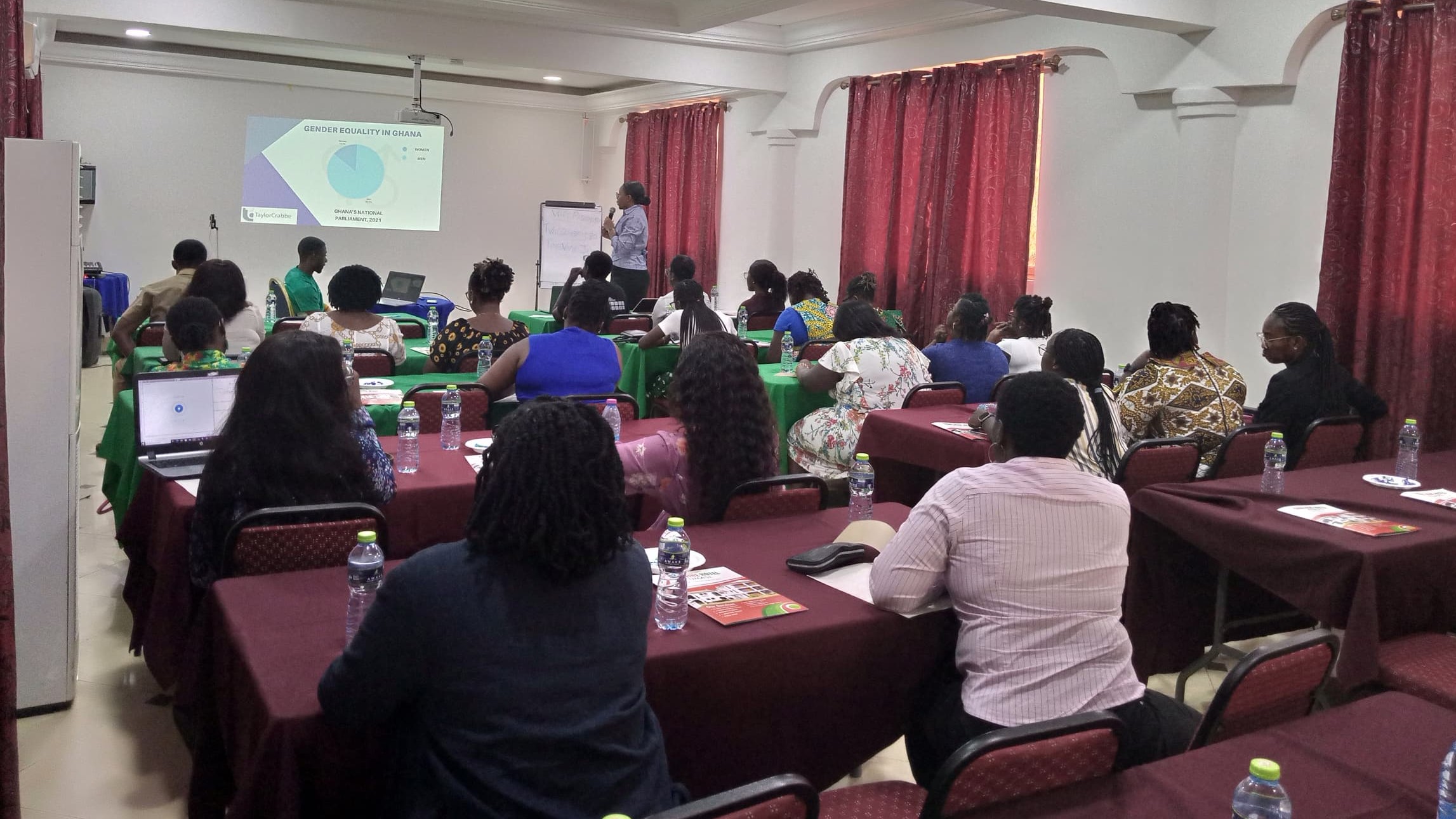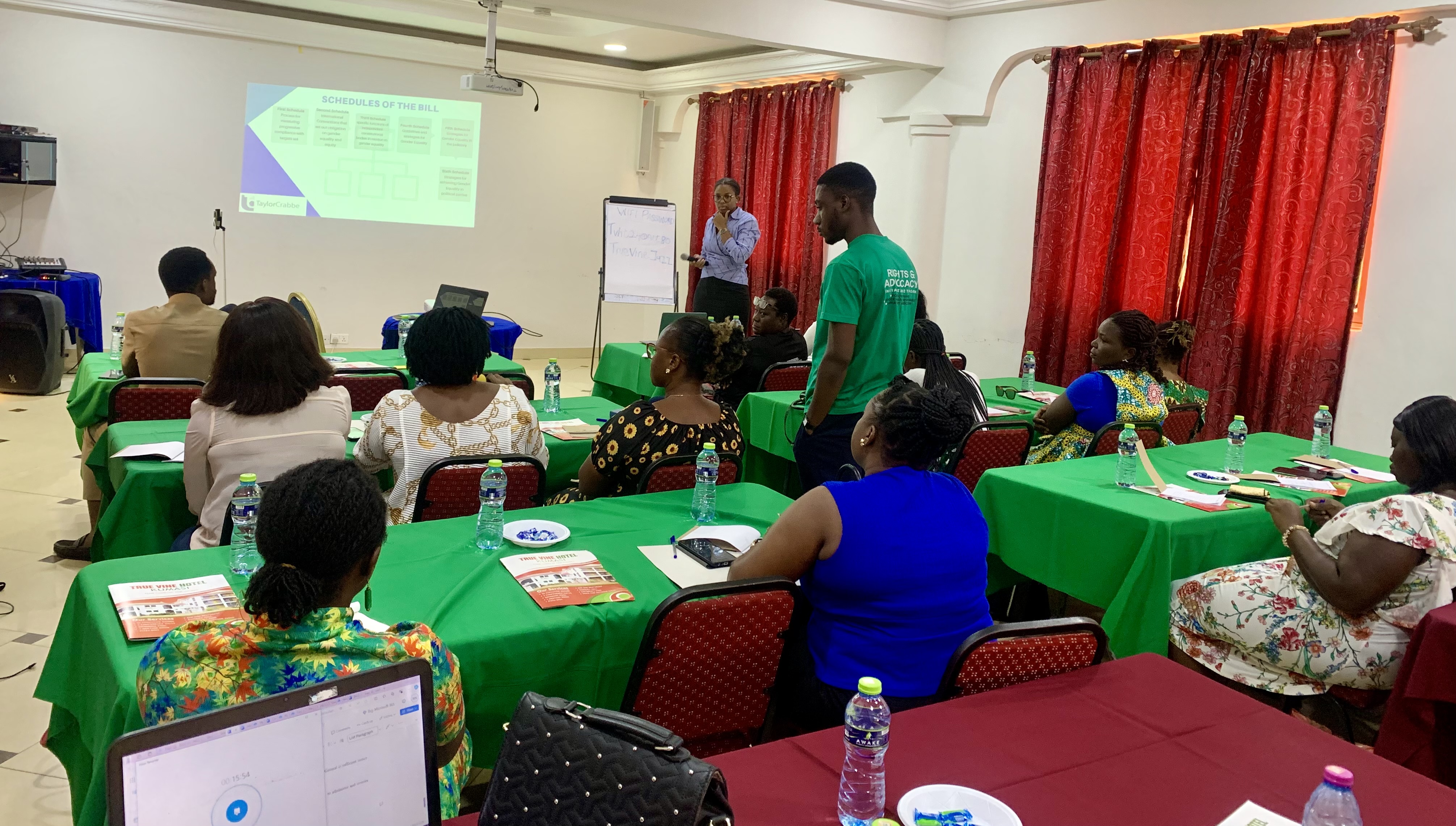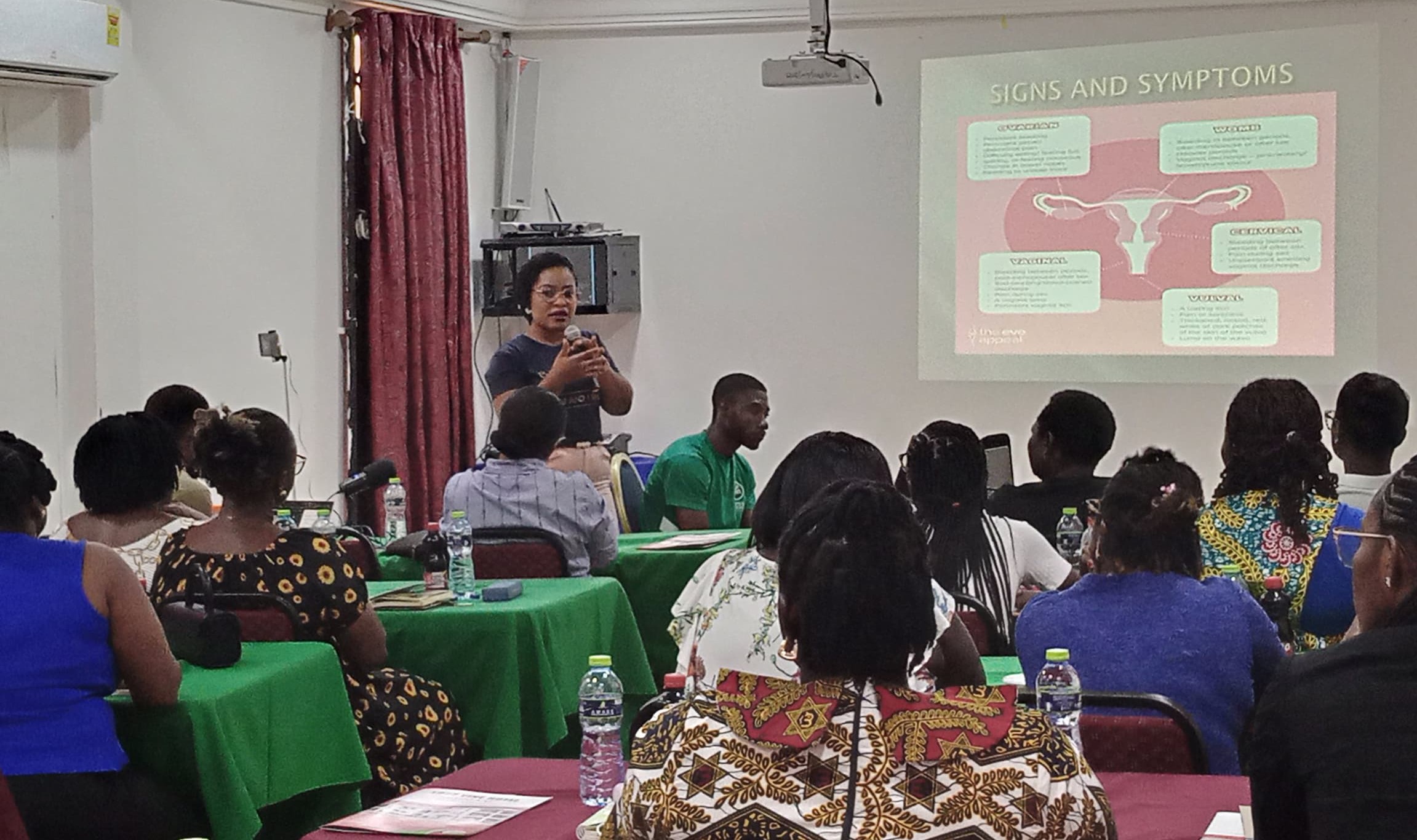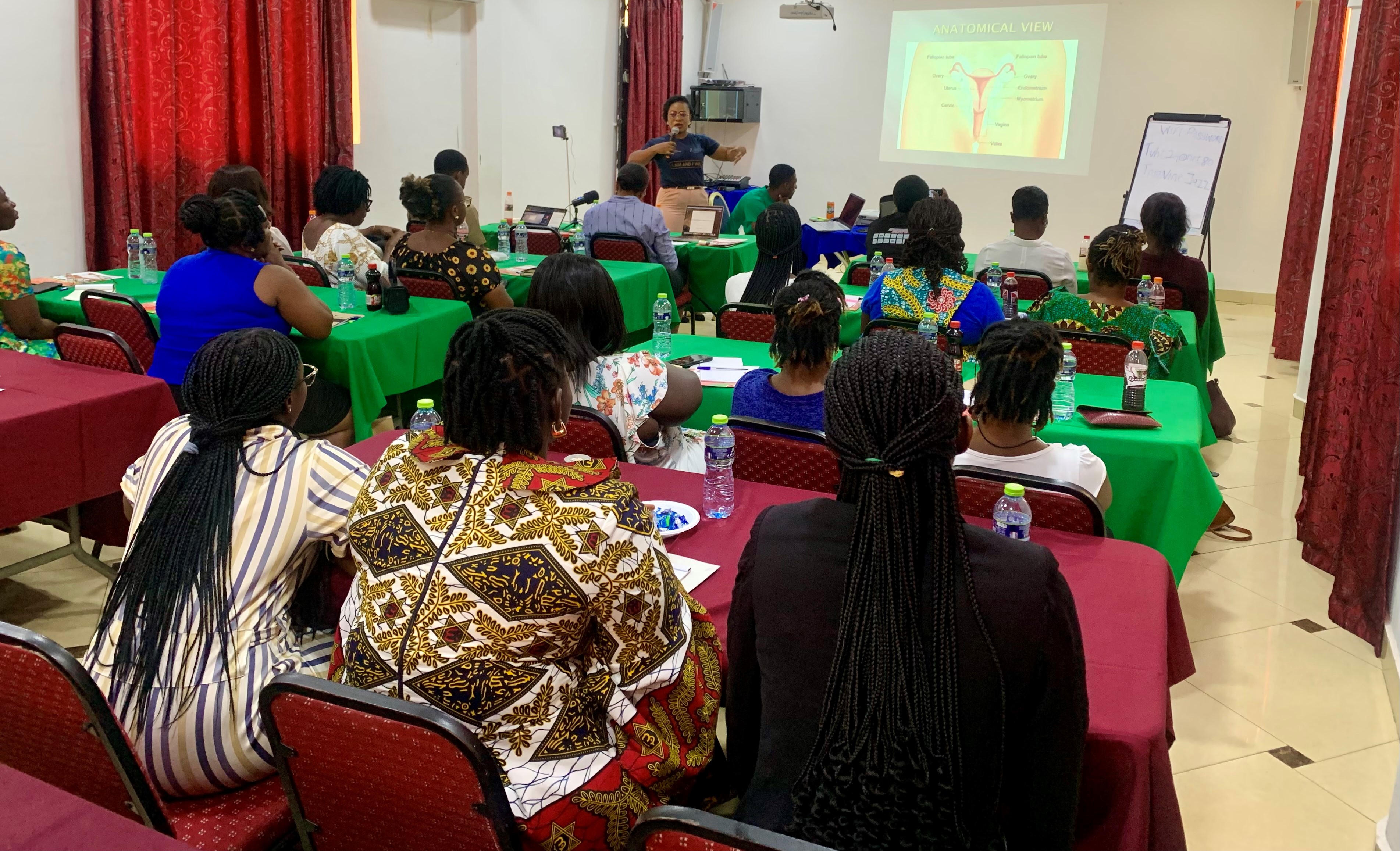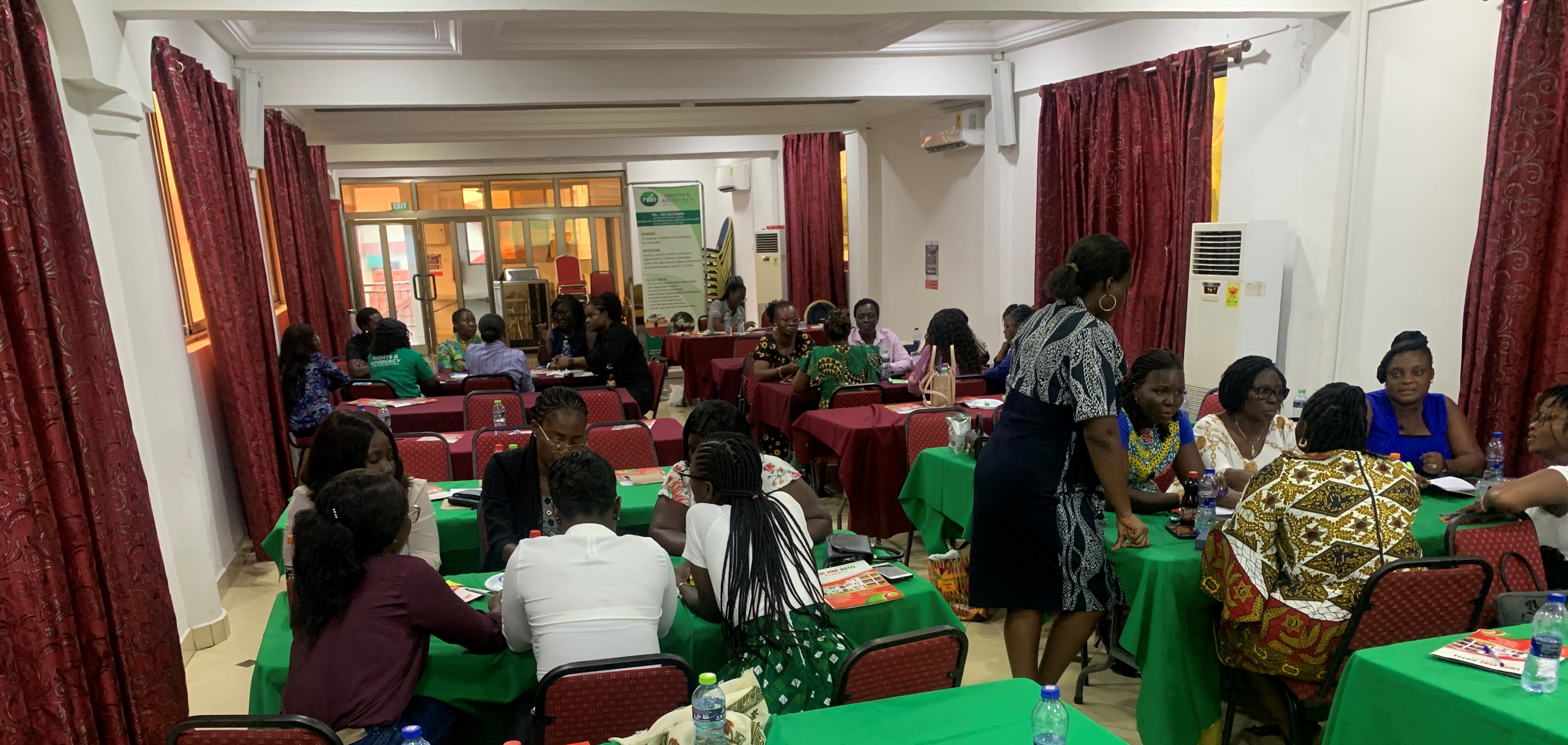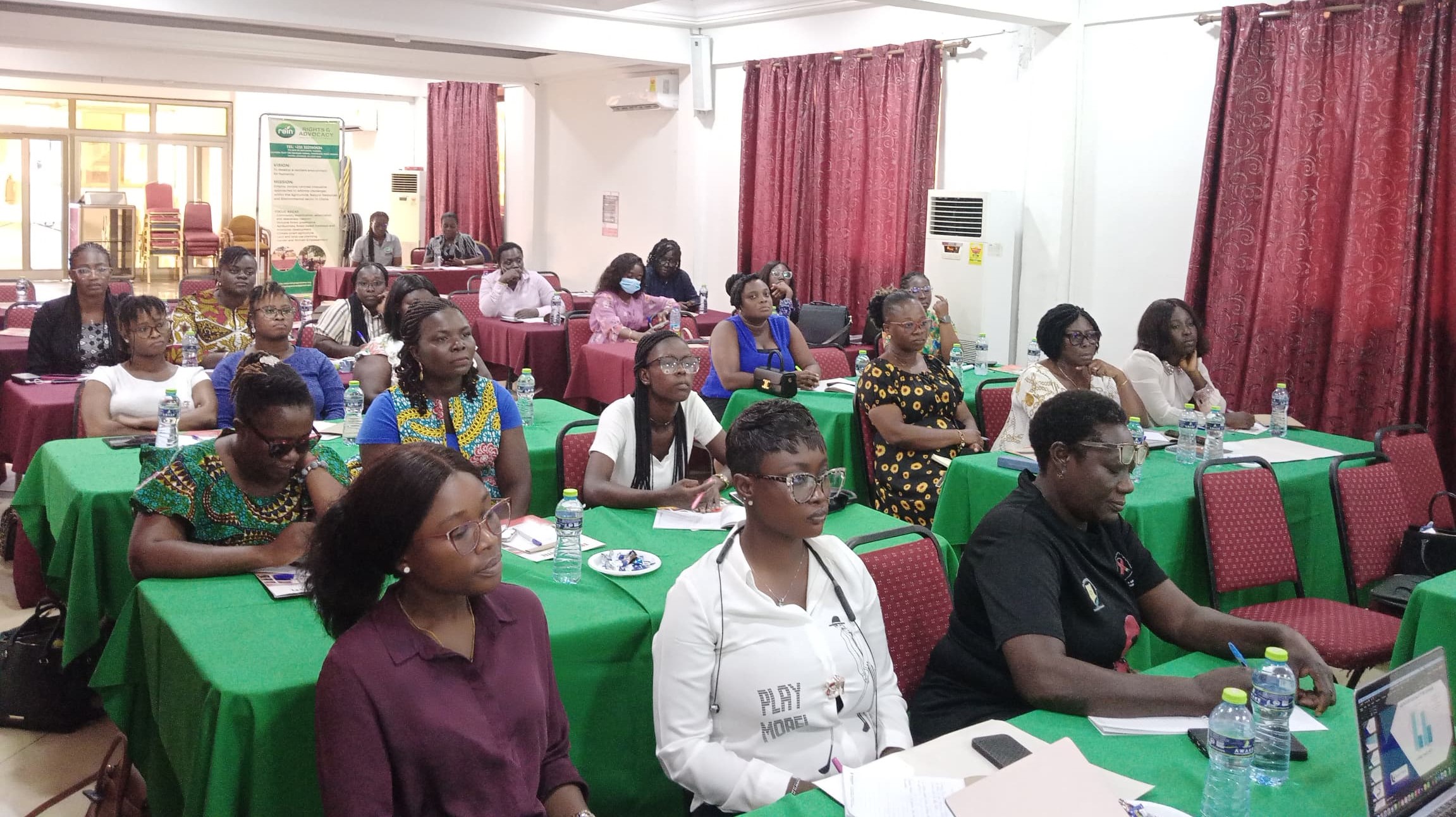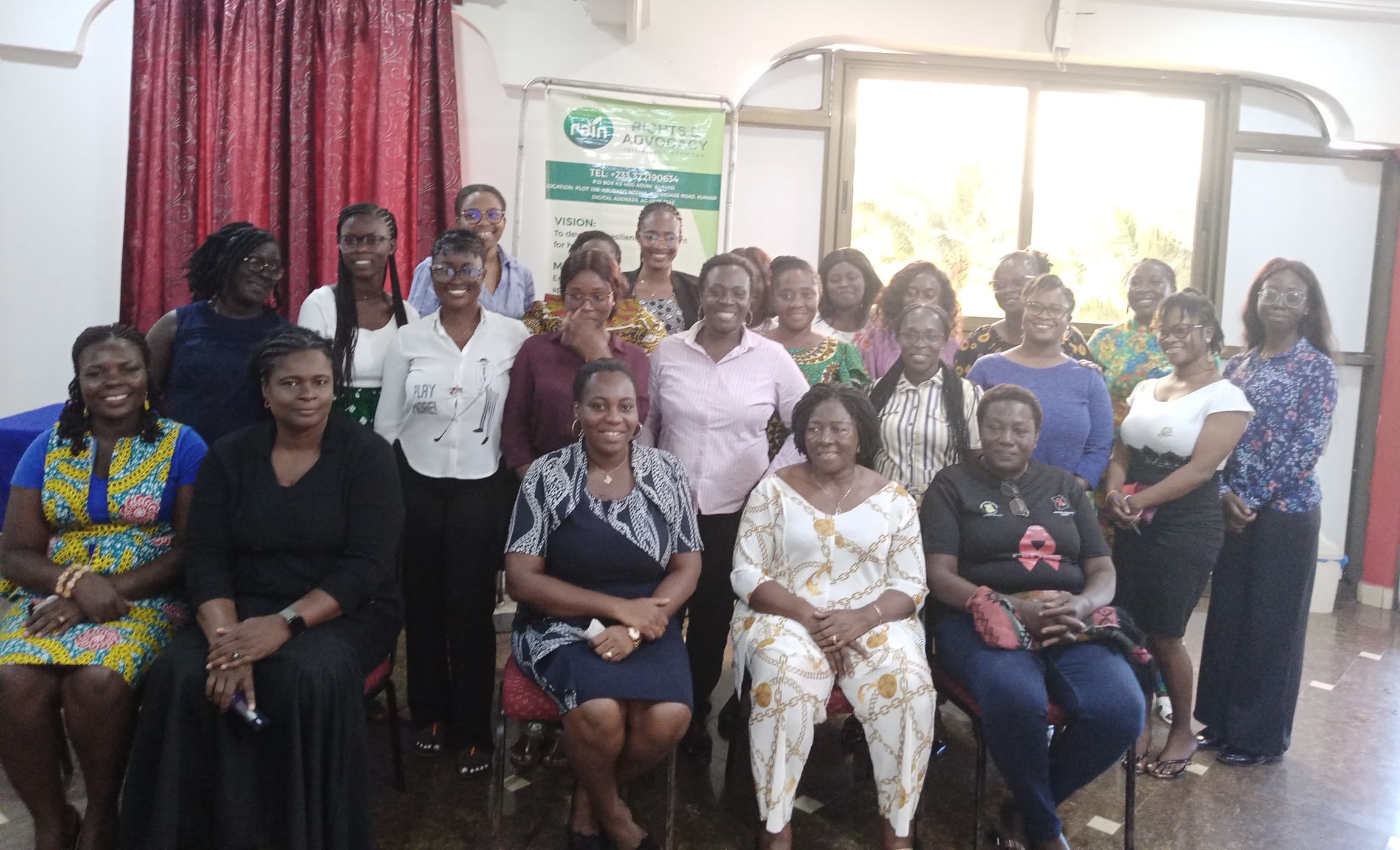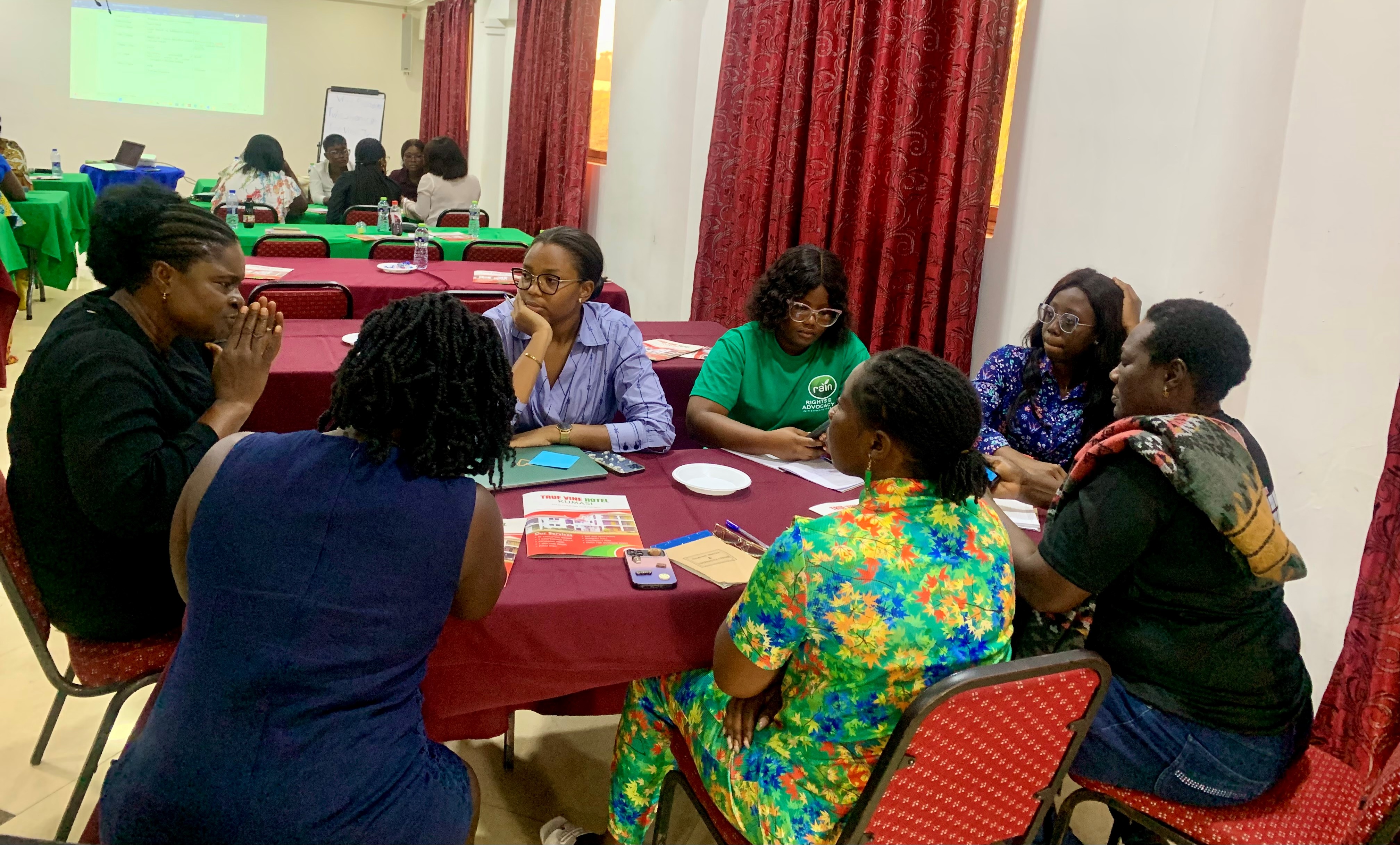
Empowering Women in Forestry: A Step Towards Gender Equality
A one-day hybrid workshop was organized in collaboration with ClientEarth to build capacity of some selected females on contemporary issues to promote good land and forest governance. Participants from institutions including Forestry Commission, Media (Ghana News Agency, Ghana Broadcast Cooperation, Daily Graphic, Ghanaian Times), Civil Society Organizations (CSO’s), Research and Academia and Timber industry attended the meeting.
Ann-Marie Palmer-Buckle (Esq.) from TaylorCrabbeInitiative (TCi), took participants through the Affirmative Action Act, 2024(Gender Equality), which was officially passed on July 30, 2024. She explained that the Act’s goal is to foster gender equality and ensure equity in Ghana's development.
She indicated that the Act establishes a Gender Equality Committee which is to ensure the adherence of the principle of gender equality alongside already existing independent bodies such as the Commission on Human Rights and Administrative Justice, National Commission for Civic Education, National Media Commission, and Electoral Commission which shall carry out specific functions in relation to gender equality.
To enforce the objective of the Act, the Gender Equality Committee, the Labour Department and the Registrar of Companies, have been entrusted with monitoring obligations over employers in the private sector.
Dorothy A. Anim (Oncology Nurse Specialist-KATH), educated participants on gynecological cancer. She provided a detailed overview of different types of cancers, their causes, impacts, and treatment options. Madam Dorothy emphasized the importance of regular check-ups and self-care, urging attendees to support women facing these health challenges.
The workshop was climaxed with a break-out sessions where participants brainstormed ways to leverage the Act for improved forestry and land governance. They highlighted the need to make the forestry sector more appealing to women, empower them to take leadership roles, and spread knowledge of the Act in local dialects to ensure accessibility.
